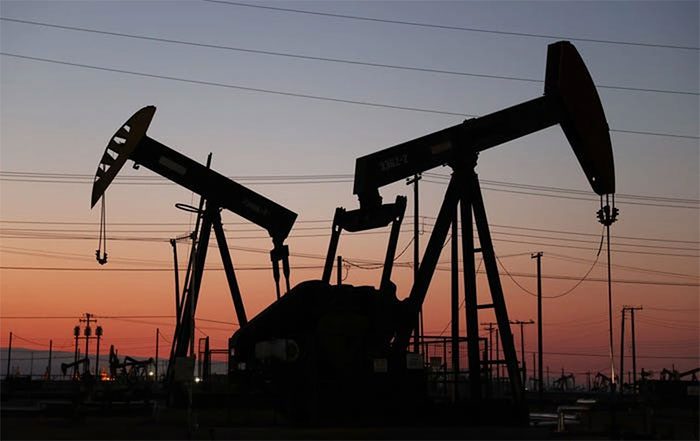In 2023, a gas extraction well in Kazakhstan leaked 140,000 tons of methane, equivalent to the emissions of nearly 800,000 cars annually. Methane has the potential to cause global warming 28 times more than carbon dioxide.
Environmental scientists have reported that a methane well in Kazakhstan emitted 140,000 tons of this gas into the Earth’s atmosphere. The leak lasted for 205 days due to one of the most severe fossil fuel eruptions ever recorded worldwide.

A fossil fuel extraction well. (Photo: Mario Tama/Getty Images).
In a recently completed analysis report dated February 13, 2024, a research team comprising scientists from France, Spain, and the Netherlands utilized satellite data to conclude that between June and December 2023, approximately 127,000 tons of methane infiltrated the atmosphere from the Karaturun East oil rig.
This methane amount is equivalent to the emissions of 791,318 natural gas-powered vehicles over the course of a year, according to calculations by the U.S. Environmental Protection Agency.
Methane is believed to have a global warming potential 28 times greater than carbon dioxide. Additionally, methane is responsible for 30% of the global temperature increase since the Industrial Revolution.
The Karaturun leak began during exploratory drilling at the well on June 9, 2023. At that time, an eruption created a flame column 9.7 meters high and a geyser 15 meters wide, making it extremely difficult to extinguish the fire. The incident was only resolved on December 25, 2023, when drilling mud was pumped into the well extensively.
Scientists in Europe find it challenging to quantify how much gas escapes from leaks in remote and hard-to-access locations like this, and in such cases, using satellite data is an effective method for assessing damage or detecting unreported leaks. They identified 115 methane emission events within six months during the Kazakh leak incident.
According to the research team, this event is one of the worst environmental disasters ever recorded.
Professor Luis Guanter from the Polytechnic University of Valencia, a member of the research team, stated that “only the Nord Stream sabotage could lead to a larger leak.” (The Nord Stream incident refers to the sabotage of an underwater gas pipeline that occurred in 2022 during the conflict between Russia and Ukraine).


















































